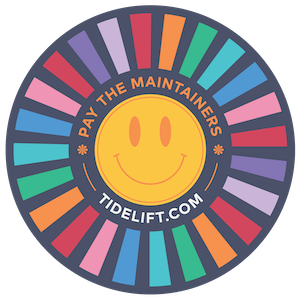Main website: https://www.commonwl.org
GitHub repository for www.commonwl.org: https://www.github.com/common-workflow-language/cwl-website
CWL v1.0.x: https://github.com/common-workflow-language/common-workflow-language (this repository)
CWL v1.1.x: https://github.com/common-workflow-language/cwl-v1.1/
CWL v1.2.x: https://github.com/common-workflow-language/cwl-v1.2/
![[Video] Common Workflow Language explained in 64 seconds](https://github.com/common-workflow-language/logo/raw/main/intro_video_screenshot_413x193.png) The Common Workflow Language (CWL) is a specification for describing analysis
workflows and tools in a way that makes them portable and scalable across a
The Common Workflow Language (CWL) is a specification for describing analysis
workflows and tools in a way that makes them portable and scalable across a
variety of software and hardware environments, from workstations to cluster,
cloud, and high performance computing (HPC) environments. CWL is designed to
meet the needs of data-intensive science, such as Bioinformatics, Medical
Imaging, Astronomy, Physics, and Chemistry.
 CWL is developed by a multi-vendor working group consisting of
organizations and individuals aiming to enable scientists to share data
analysis workflows. The CWL project is maintained on
Github
and we follow the Open-Stand.org principles for collaborative open standards development.
Legally, CWL is a member project of Software Freedom Conservancy
and is formally managed by the elected CWL leadership team,
however every-day project decisions are made by the CWL community
which is open for participation by anyone.
CWL is developed by a multi-vendor working group consisting of
organizations and individuals aiming to enable scientists to share data
analysis workflows. The CWL project is maintained on
Github
and we follow the Open-Stand.org principles for collaborative open standards development.
Legally, CWL is a member project of Software Freedom Conservancy
and is formally managed by the elected CWL leadership team,
however every-day project decisions are made by the CWL community
which is open for participation by anyone.
CWL builds on technologies such as JSON-LD for data modeling and Docker for portable runtime environments.
The CWL user guide provides a gentle introduction to learning how to write CWL command line tool and workflow descriptions.
CWLの日本語での解説ドキュメント is a 15 minute introduction to the CWL project in Japanese.
CWLの日本語での解説ドキュメント is a 15 minute introduction to the CWL project in Japanese.
A series of video lessons about CWL is available in Russian as part of the Управление вычислениями(Computation Management) free online course.
To reference the CWL project in a scholary work, please use the following citation:
Michael R. Crusoe, Sanne Abeln, Alexandru Iosup, Peter Amstutz, John Chilton, Nebojša Tijanić, Hervé Ménager, Stian Soiland-Reyes, Bogdan Gavrilović, Carole Goble, and The CWL Community. (2022): Methods Included: Standardizing Computational Reuse and Portability with the Common Workflow Language. Commun. ACM 65, 6 (June 2022), 54–63. https://doi.org/10.1145/3486897
To cite version 1.0 of the CWL standards specifically, please use the following citation inclusive of the DOI.
Peter Amstutz, Michael R. Crusoe, Nebojša Tijanić (editors), Brad Chapman, John Chilton, Michael Heuer, Andrey Kartashov, Dan Leehr, Hervé Ménager, Maya Nedeljkovich, Matt Scales, Stian Soiland-Reyes, Luka Stojanovic (2016): Common Workflow Language, v1.0. Specification, Common Workflow Language working group. https://w3id.org/cwl/v1.0/ doi:10.6084/m9.figshare.3115156.v2
A collection of existing references to CWL can be found at https://zotero.org/groups/cwl
The CWL Project is dedicated to providing a harassment-free experience for everyone, regardless of gender, gender identity and expression, sexual orientation, disability, physical appearance, body size, age, race, or religion. We do not tolerate harassment of participants in any form. This code of conduct applies to all CWL Project spaces, including the Google Group, the Gitter chat room, the Google Hangouts chats, both online and off. Anyone who violates this code of conduct may be sanctioned or expelled from these spaces at the discretion of the leadership team.
For more details, see our Code of Conduct.
- Support, Community and Contributing
- CWL Implementations
- Repositories of CWL Tools and Workflows
- Software for working with CWL
- Editors and viewers
- Utilities
- Converters and code generators
- Code libraries
- Projects the CWL community is participating in
- Participating Organizations
- Individual Contributors
- CWL Advisors
- CWL Leadership team
Please see https://www.commonwl.org

